Do you have a question about the GMC 2004 Savana Van and is the answer not in the manual?
Details on adjusting manual and power front seats, including reclining seatbacks for comfort and safety.
Instructions on removing and replacing rear seats, including securing safety belts properly for passengers.
Comprehensive guide on wearing safety belts correctly for adults, children, and pregnant women to ensure maximum protection.
Information on selecting and properly installing child restraint systems, including LATCH systems and older children.
Explanation of how air bags work, when they inflate, and crucial safety precautions to avoid injury.
Guidance on regularly checking safety belts, buckles, and air bag covers for proper function and safety.
Information on the vehicle's key system, including remote entry and handling keyless entry transmitters.
Details on operating door locks, power door locks, security locks, and lockout protection features for vehicle security.
Instructions for operating manual and power windows, including swing-out windows and safety warnings about closed windows.
Explanation of the vehicle's theft-deterrent features, such as Passlock®, to protect against vehicle theft.
Essential guidance on new vehicle break-in, ignition positions, starting the engine, and transmission operation.
How to adjust manual and power mirrors, including outside camper-type mirrors, for optimal visibility and safety.
Overview of OnStar® services, plans, and how to use the system for safety, security, and convenience.
Information on locating and using various storage compartments within the vehicle for convenience.
Identification and location of the main components on the instrument panel for easy reference.
How to operate hazard warning flashers to alert other drivers and signal a problem.
How to adjust the steering wheel for driver comfort and easier entry/exit from the vehicle.
Operation of the turn signal lever for signaling turns, lane changes, and controlling headlamps and wipers.
How to operate windshield wipers and washers, including delay settings and blade maintenance.
How to set, use, and disable cruise control, including safety warnings for specific driving conditions.
Operation of exterior lamps, including parking lamps, headlamps, and daytime running lamps (DRLs).
Control of interior lighting, including dome lamp override, entry lighting, and reading lamps for convenience.
How to use accessory power outlets and cigarette lighters for charging electronic devices.
Operation of the heating, cooling, and ventilation system, including defrosting and defogging features.
Understanding the function of all warning lights, gages, and indicators on the instrument panel for vehicle status.
How to operate the vehicle's audio system, including AM/FM radio, CD player, and setting preferences.
General advice on defensive driving, anticipating other drivers, and maintaining focus on the road.
Critical information on the dangers of drinking and driving, its effects, and legal limits to prevent accidents.
Understanding the three control systems (brakes, steering, accelerator) and how to maintain control, especially in slippery conditions.
Explanation of how the ABS system works to prevent braking skids and improve steering control.
How Stabilitrak® combines brake, traction, and stability control to enhance directional control in various driving conditions.
Information on power steering assist, and tips for safe driving on curves to maintain vehicle control.
How to recover your vehicle if it goes off the road and onto the shoulder, with steps for safe re-entry.
Safe techniques and tips for passing other vehicles on two-lane highways to avoid dangerous situations.
Understanding what causes skids (braking, steering, acceleration) and how to regain control of the vehicle.
Important tips for safer night driving, including visibility, glare reduction, and awareness of fatigue.
How to drive safely in wet conditions, including hydroplaning awareness, visibility, and tire maintenance.
Tips for navigating city streets safely, managing traffic, and understanding traffic signals.
Rules and advice for safe freeway driving, including keeping pace with traffic and lane changes.
Essential pre-trip checks for your vehicle, weather forecasts, and route planning for a safe journey.
Specific advice for driving on steep hills and mountain roads, including engine braking and cornering.
How to prepare your vehicle and drive safely during winter conditions, including snow and ice.
Steps and cautions for freeing your vehicle if it becomes stuck in various challenging conditions.
Information on towing your vehicle, including recreational towing and proper procedures.
Crucial guidance on determining vehicle capacity weight, load limits, and safe loading practices to prevent accidents.
Comprehensive instructions on towing a trailer safely, including weight considerations, hitches, and trailer wiring.
Information on recommended GM service, parts, and the benefits of using genuine GM parts for vehicle longevity.
Guidance on fuel types, octane ratings, and specifications for optimal engine performance and emission control.
A guide to visually inspecting key engine compartment components for maintenance and safety.
How to check and add engine oil, including the correct type of oil and the GM Oil Life System for oil change intervals.
How to inspect and replace the engine air cleaner filter to ensure optimal engine performance.
Guidelines for checking and changing automatic transmission fluid, including service intervals for different driving conditions.
Information on the cooling system, adding coolant, and precautions against engine overheating.
Location and importance of the radiator pressure cap for maintaining cooling system integrity.
What to do if your engine overheats, including safety precautions and driving to a safe place.
Overview of the cooling system components and how to check and add coolant safely.
Understanding normal engine fan noise and when it might indicate a problem.
How to check and add power steering fluid, and what to do if you suspect a leak.
Guidance on selecting and adding windshield washer fluid, with warnings about freezing conditions.
Information on brake fluid, checking brake fluid levels, and brake wear indicators for safe operation.
Battery maintenance, warnings about battery acid and gas, and vehicle storage tips.
How to prepare your vehicle for extended storage, including battery care.
Step-by-step instructions and safety precautions for jump-starting a vehicle with a dead battery.
Information on the all-wheel drive system and checking its lubricant levels.
How to check and add lubricant for the transfer case on AWD vehicles.
How to check and add lubricant for the rear axle, with specifications for different series.
How to check and add lubricant for the front axle, with specifications for cold and warm differentials.
Information on federal noise emission standards and prohibited tampering with noise control components.
Procedures for replacing various exterior and interior bulbs, including headlamps and taillamps.
Step-by-step guide to removing and replacing headlamp bulbs, with safety precautions for halogen bulbs.
How to replace bulbs for front turn signals, sidemarkers, and parking lamps.
Instructions for removing and replacing taillamp bulbs.
A table listing bulb numbers for various exterior lamps for easy reference.
How to inspect and replace windshield wiper blades for optimal performance.
Critical information on tire maintenance, including proper inflation, wear, and safety warnings.
Understanding the information molded into tire sidewalls, such as size, load, and performance criteria.
Explanation of tire size codes and terminology for passenger and light truck tires.
Definitions of key tire terms like aspect ratio, construction code, and speed rating.
How to check and maintain correct tire inflation pressure, and the dangers of under/overinflation.
Specific considerations for dual tire setups, including wear, rotation, and torque.
How to inspect tires for wear and perform rotation for uniform wear and longer tire life.
How to identify when tires need replacement based on treadwear indicators and visible damage.
Advice on selecting and purchasing new tires, emphasizing matching TPC Spec numbers and size.
Understanding UTQG ratings for treadwear, traction, and temperature resistance.
When wheel alignment or balance might be needed due to tire wear or pulling.
Guidelines for replacing wheels, including when to replace them and using correct GM parts.
Warnings and restrictions regarding the use of tire chains, especially for dual wheels or specific tire sizes.
What to expect and how to react if a tire experiences a blowout or slow leak while driving.
Step-by-step instructions and safety precautions for safely changing a flat tire using the provided equipment.
How to properly store the jack, tools, and spare tire to prevent injury or damage.
General advice on cleaning and maintaining the vehicle's interior and exterior appearance.
How to clean interior surfaces like vinyl, leather, and fabric using appropriate methods.
Methods for cleaning fabric and carpet, including special instructions for stain removal.
How to clean vinyl surfaces, including tips for removing tough stains like tar.
Proper methods for cleaning and conditioning leather upholstery to maintain its appearance.
How to clean the instrument panel top surface to avoid reflections.
Proper cleaning methods for interior plastic components using mild soap and water.
How to clean all glass surfaces, including warnings about abrasive cleaners and rear defogger.
How to clean and care for safety belts to ensure their effectiveness and prevent weakening.
How to maintain weatherstrips with silicone grease for better sealing and longevity.
General advice on washing and drying the vehicle to preserve its paint finish.
How to clean exterior lamps and lenses safely.
Tips for maintaining the vehicle's paint finish, including waxing and polishing recommendations.
How to deal with finish damage like stone chips and scratches, and when to seek professional repair.
Importance of flushing the underbody to prevent corrosion from road chemicals and debris.
Information on damage caused by airborne pollutants and GM's policy for repairing such conditions.
A list of recommended GM-approved products for vehicle appearance maintenance.
How to find and understand your vehicle's VIN, engine identification, and service parts label.
Information on the vehicle's electrical system, including add-on equipment, headlamp wiring, and fuses.
Location and usage of fuses and circuit breakers for various vehicle systems, including floor console and engine bay blocks.
Diagram and list of fuses and their corresponding circuits located in the engine compartment.
Key vehicle specifications, including fluid capacities, torque values, and tire pressure information.
Introduction to the maintenance schedule and its importance for vehicle upkeep and warranty.
Understanding maintenance intervals, checks, and the necessity of using specified parts for warranty coverage.
How proper vehicle maintenance contributes to environmental protection and optimal vehicle performance.
Detailed schedule for required maintenance services based on mileage or time intervals, including oil changes.
Specific services required at certain mileage intervals, often related to emission control systems or heavy-duty use.
Routine checks and services that owners can perform to maintain vehicle safety and condition.
A guide to the specific fluids and lubricants recommended for your vehicle, including part numbers.
A list of common replacement parts with GM and ACDelco part numbers for easy identification.
Overview of customer support resources, including satisfaction procedures and contact information.
Steps to follow to resolve concerns with dealers or GMC, ensuring customer satisfaction.
How to access online resources for vehicle information, service reminders, and dealer locations.
Specific contact information for TTY users needing customer assistance.
Contact details for customer assistance centers in the US, Canada, Puerto Rico, and overseas.
Information about a program offering assistance and reimbursement for adaptive driving equipment.
Details of the GMC Roadside Assistance program, covering services like fuel delivery, lock-out, and jump starts.
Information on courtesy transportation options available during warranty repairs.
Advice on scheduling service appointments and coordinating transportation needs with your dealer.
Explanation of vehicle computer systems and the data they collect, including crash event information.
How to report safety defects to government agencies and General Motors to ensure vehicle safety.
How to order service manuals and other technical publications for your vehicle.
| Brand | GMC |
|---|---|
| Model | 2004 Savana Van |
| Category | Automobile |
| Language | English |

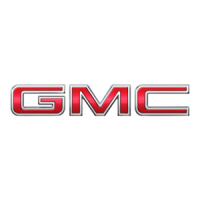



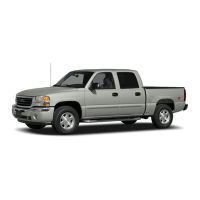

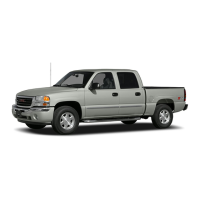

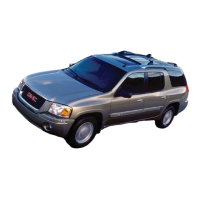
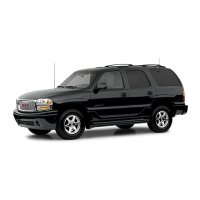

